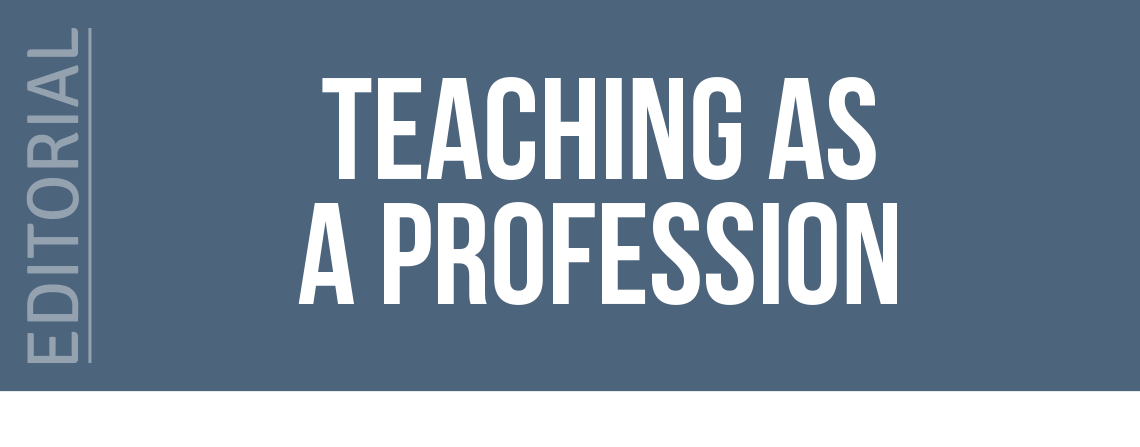Are we professionals? Do we act as professionals at all times? Do we treat all our colleagues as professionals?
Do we regard all our students as clients and teach them as though teaching is to DIE for (Diagnose, Intervene and Evaluate)? Are we clinical in our methods and knowledge of impact?
Whilst the New Teaching Standards, performance management and performance-related pay dominate the current landscape, there is a clear need for all teachers to be professionals. In return, we should expect to be rewarded and be treated as such.
Former (and most highly regarded by teachers) Education Secretary, Baroness Estelle Morris, set out four clear principles of a modern teaching profession.
The four markers of a teaching profession:
Body of knowledge
An evidence base now informs teachers of what works. Professional development opportunities keep that body of knowledge updated. All teachers must have access to this knowledge and stop doing what we think is right and start practising what is proven to be effective.
Regular review/upgrade of practice
We have moved beyond the quality control process of Ofsted and now use quality assurance processes to inform development needs. In most schools, teachers are well aware of both their own and their school’s present performance level.
They know what they need to do to improve their performance further. They also know that this process is ongoing.
Joint/shared development of practice
What is similar? The educational processes we share. The journey to reflective practice; as an individual professional, as a collaborator and most powerfully as a whole school. Connectivity between the curriculum and the underpinning competencies we are developing in students.
What is different? The individual nature of students, our strengths and the context in which we work. How we engage and challenge everyone.
What can be shared? How we learn from our collective experience. Our own and shared research. The times we innovate, the ways we imitate and the strength through which we iterate.
Professional confidence
Is the knowledge that we work to shared codes of practice so that we can confidently rely on one another’s support. This gives us an innate understanding when it is clear that there is a case to break those rules (for efficiency or moral imperative) and that we do so with shared responsibility. To professionally agree to differ for the greater good and forwarding knowledge of the profession that is teaching.
Politicians and the wider media will find such a shared voice far more helpful than so many individual cries for betterment.
Will a National College of Teaching help the cause of professionalism? The jury is out. It would certainly have to be a very different institution to the now defunct GTC.
Teaching as a profession, watch this space. SR

